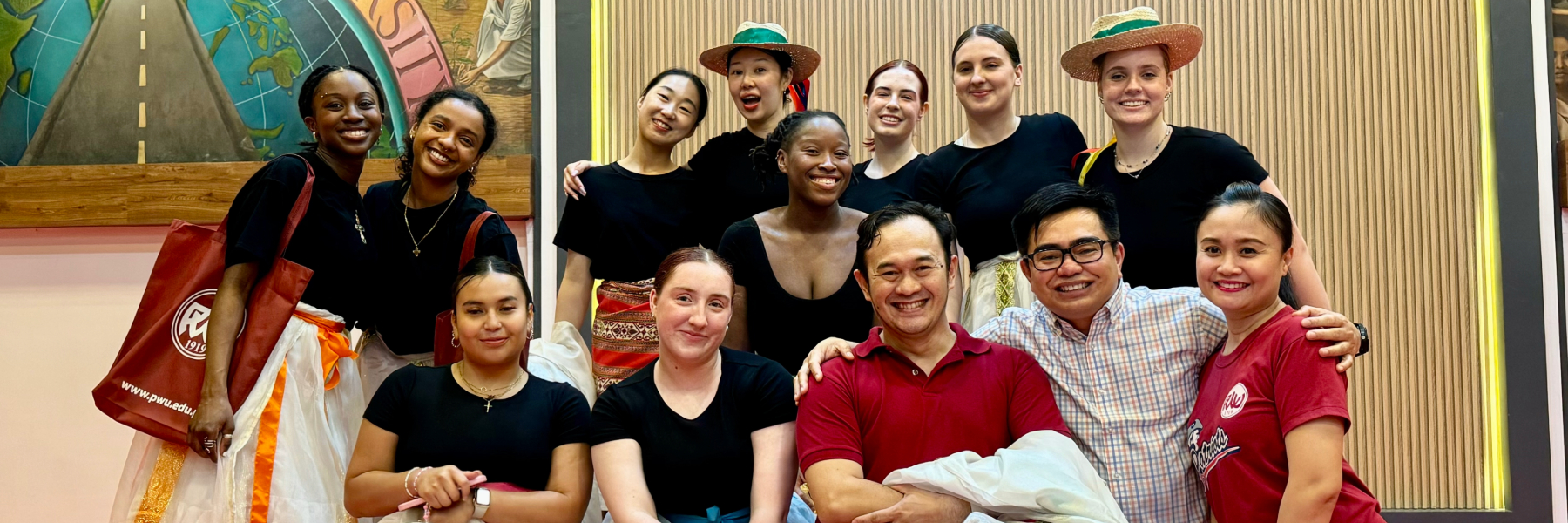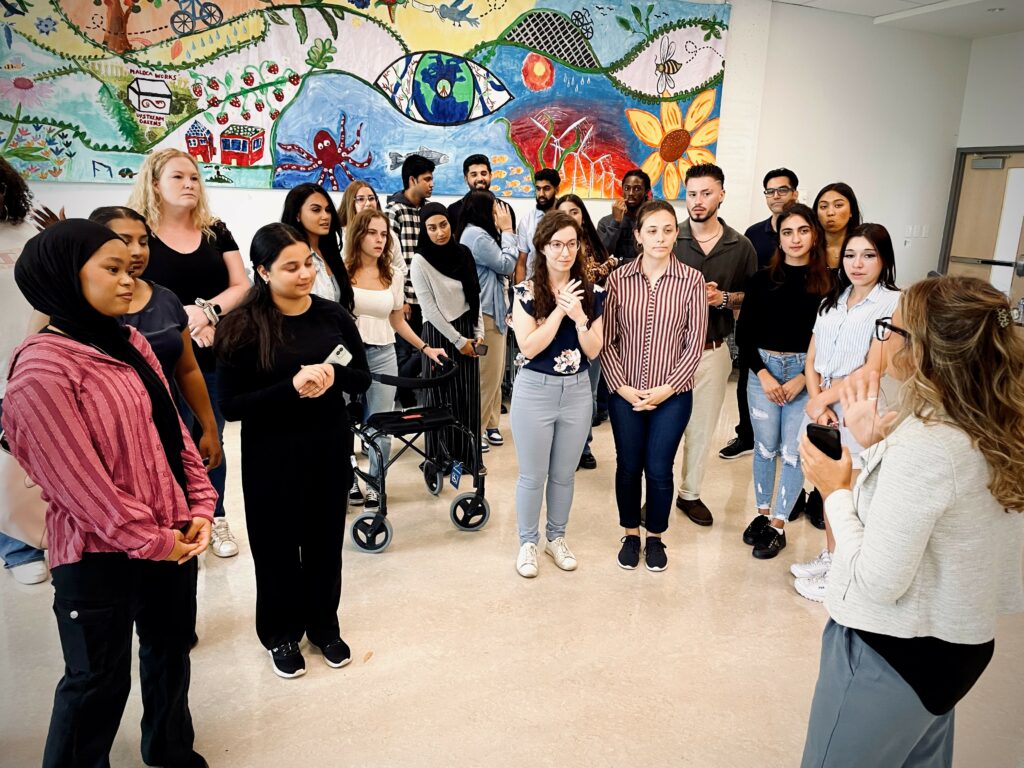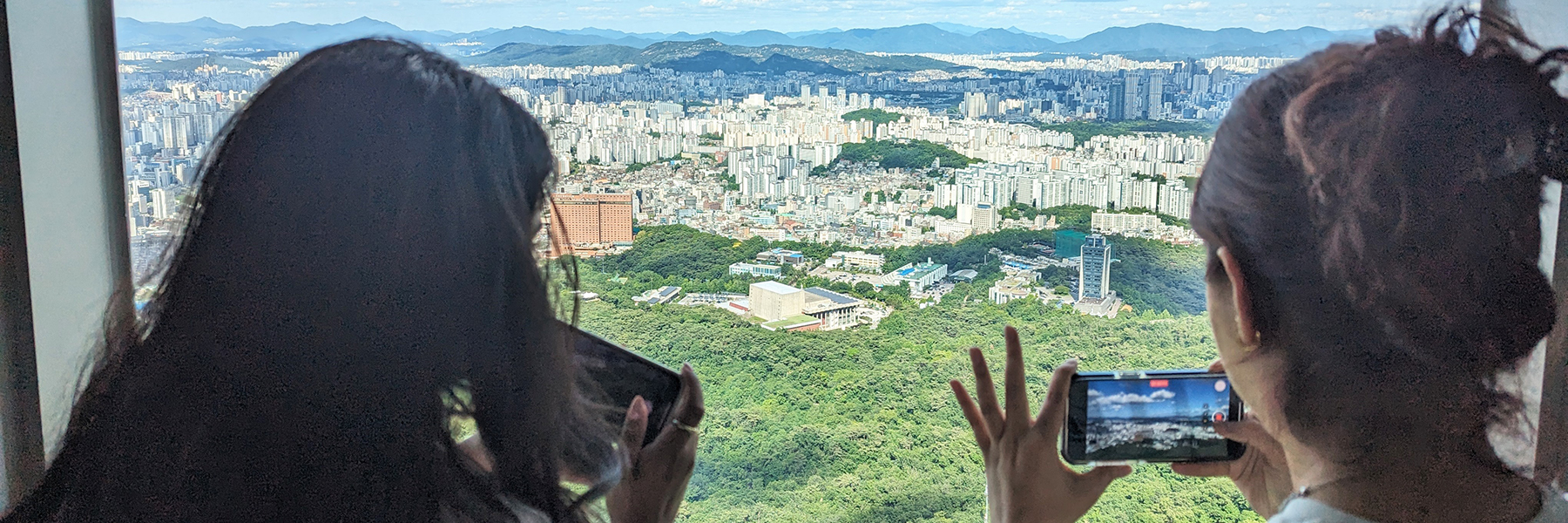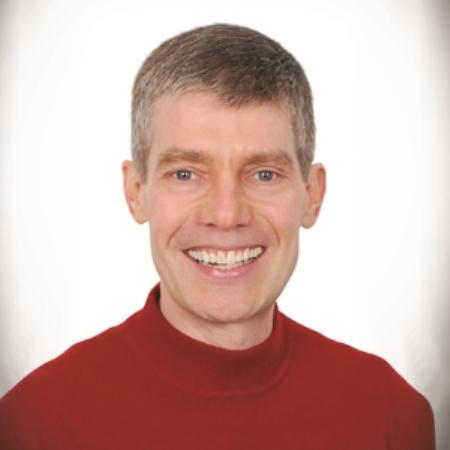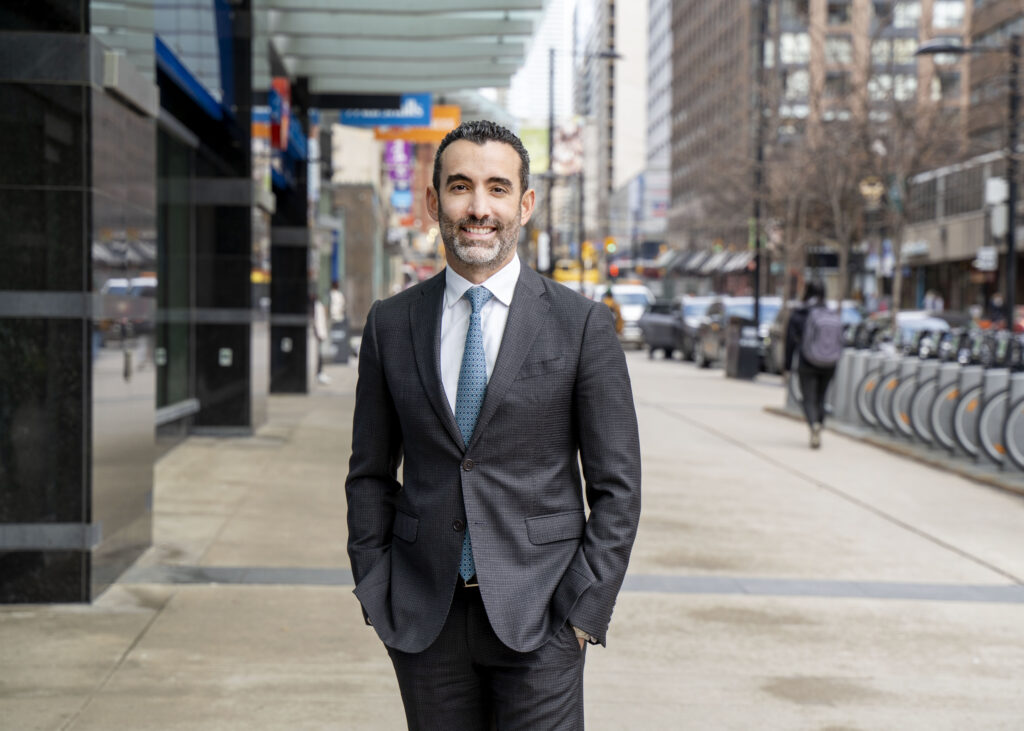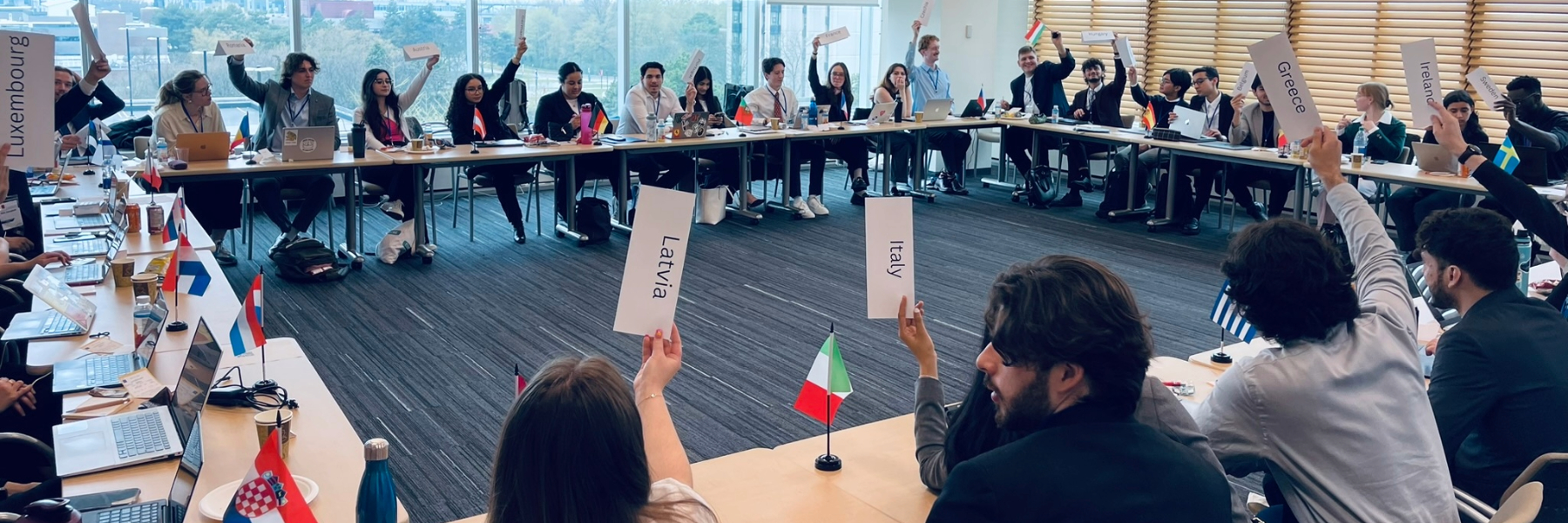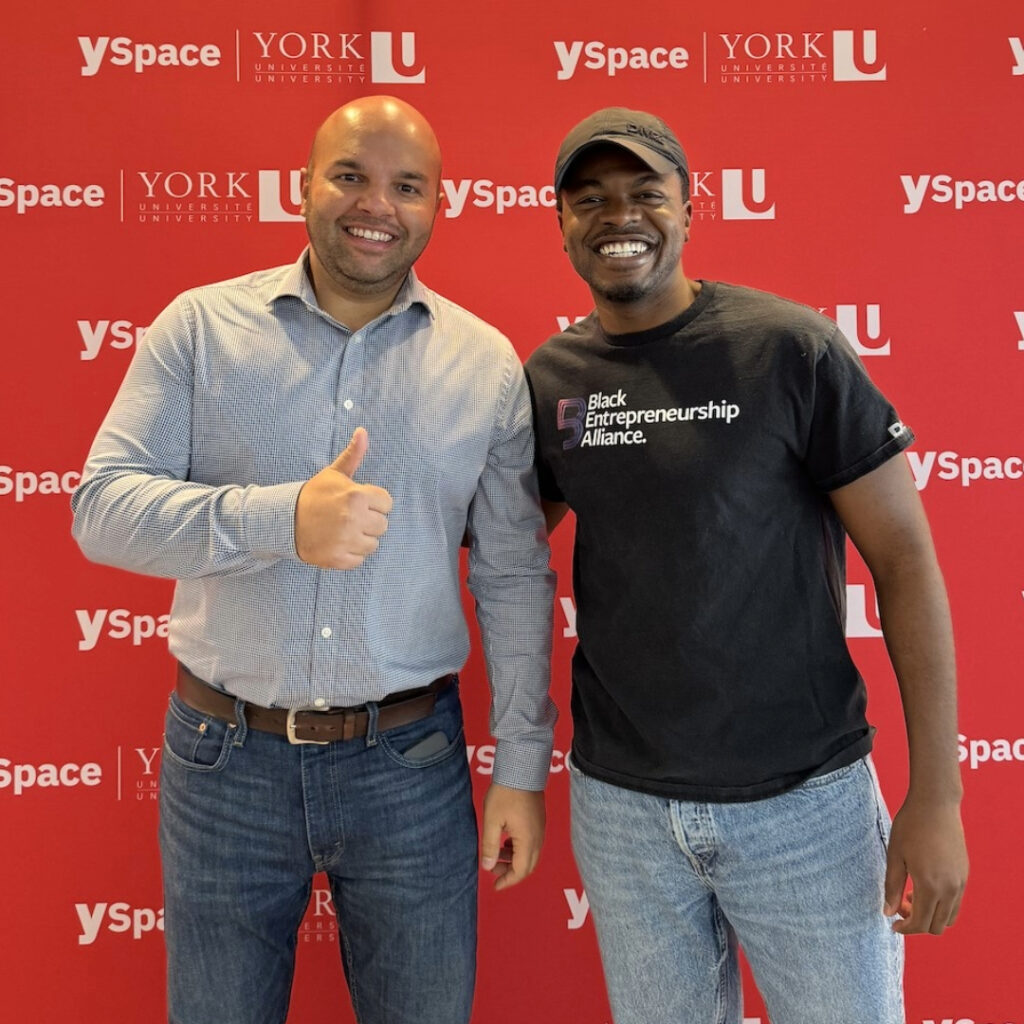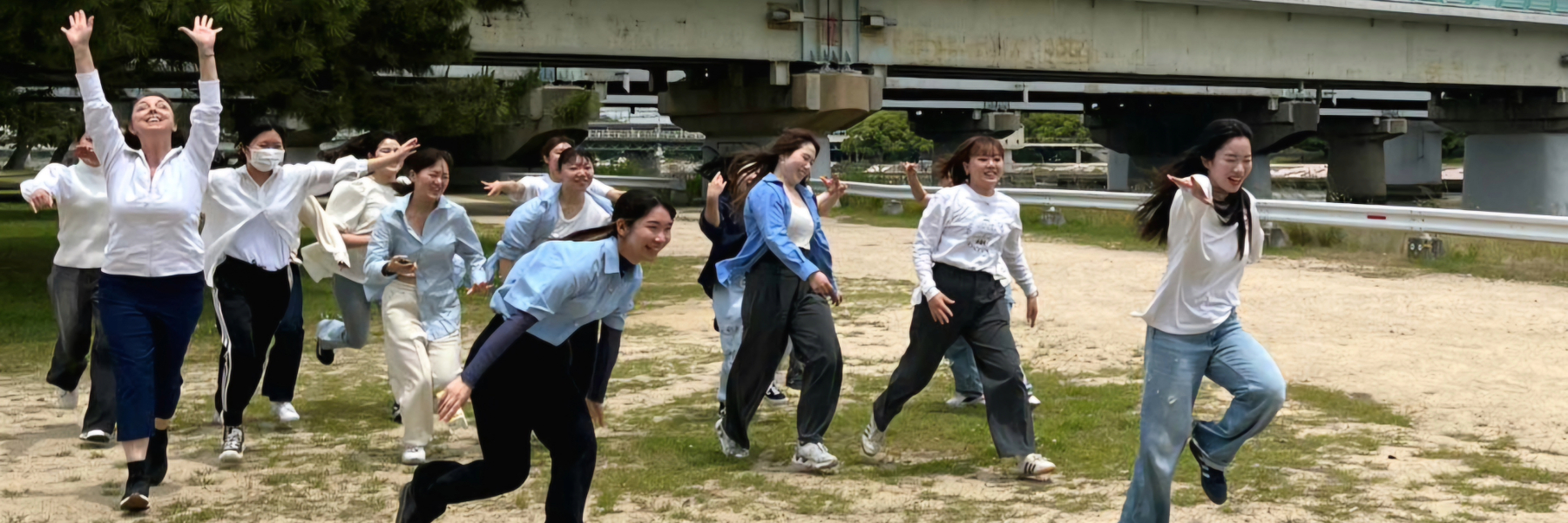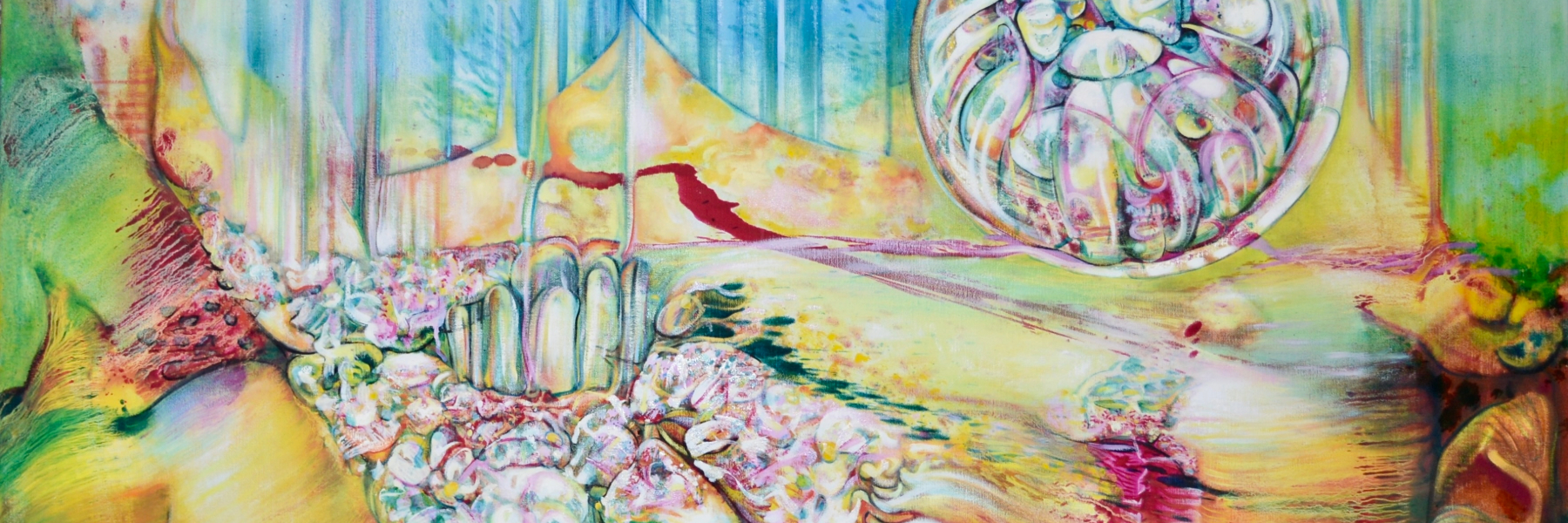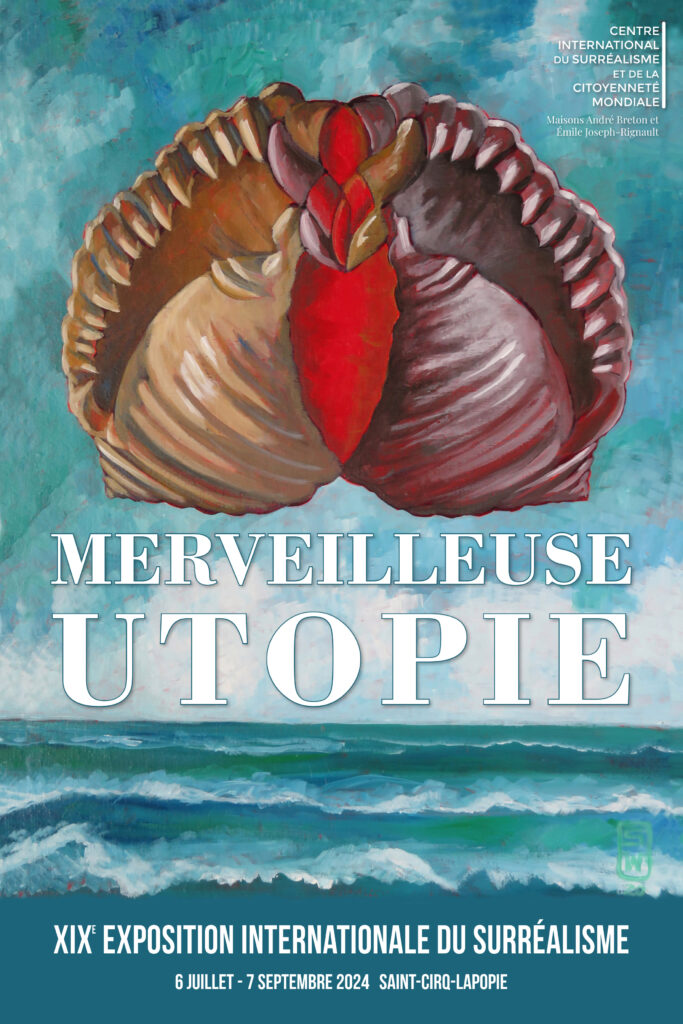By Elaine Smith
After 16 years of teaching Philippine folk dance to York University students in the School of the Arts, Media, Performance & Design, Professor Patrick Alcedo decided it was time to take students to the Southeast Asian nation to learn new dances in their original settings.
Alcedo’s Summer 2024 course, Philippine Folk Dance and Culture, immersed the students in the world of Philippine dance for three weeks, bringing them into contact with students and faculty from five universities, as well as a national dance troupe, as they learned new steps and movement sequences.
“It was time to offer a course in situ, and it’s especially meaningful this year because it’s the 75th anniversary of Canada-Philippines diplomatic relations,” said Alcedo. “York has an agreement with a consortium of five universities, and we visited all of them in three weeks. It was a whirlwind.”
The course provided the 11 student participants with a mixture of studio work, lectures and performance opportunities. They learned dances from teachers at each of the universities and put on three recitals. They also learned about the cultural context of the different styles of dance and how they related to the country’s colonial past.
“This experience allowed me to integrate with other students, to learn from world-renowned dancers, and to learn the cultural history of folk dance and the Philippines,” said fourth-year student Anna Paddon.
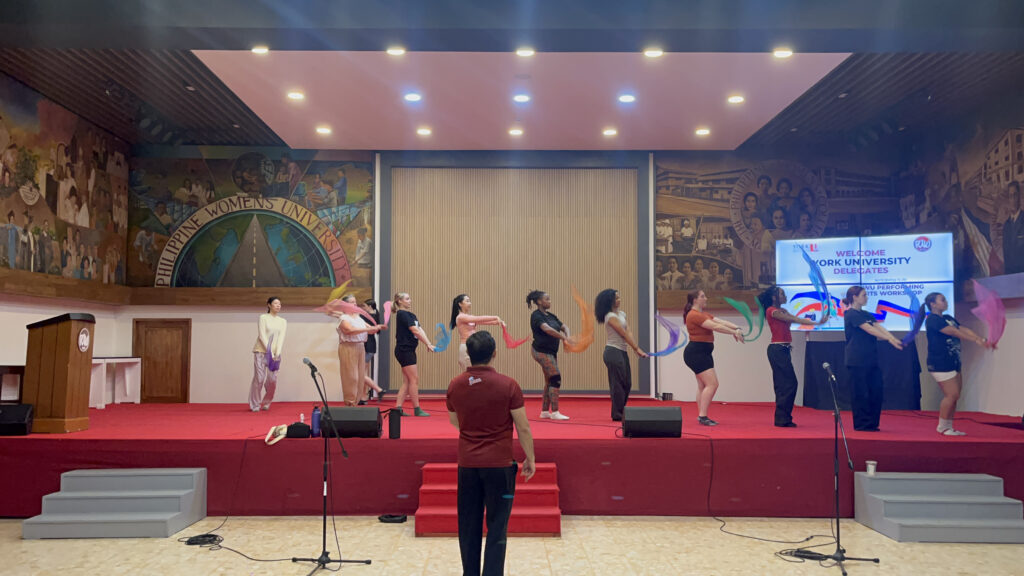
Students began their adventure at Philippine Women’s University in Manila, home to the Bayanihan – the national dance company of the Philippines. There, they learned six new dances in one week and also took a day trip to Ateneo de Manila, one of the country’s oldest universities.
Next came a visit to Bulacan State University, one of the country’s fastest-growing post-secondary institutions. York U students joined Bulacan students for a screening of Alcedo’s documentary film, A Will to Dream, which focuses on underprivileged dancers and the power of movement to change their lives. After the screening, the two groups were led to the university’s performance hall to dance together.
After heading back to Manila for a visit to Eastern University, a private school known for its art deco-style architecture, York U students learned a new dance from local instructors while Alcedo taught a group of local students.
The next stop was the Quezon City Performing Arts Development Foundation, home to the dance program for at-risk youth featured in Alcedo’s documentary. There, the York U class enjoyed a student performance followed by an Indigenous music class.
“Our students were able to see the power of dance to lift people from poverty with skills for a better future,” Alcedo said.
To close out the trip, the class visited the University of the Philippines in Diliman. In addition to being Alcedo’s alma mater, it is also home to the internationally touring Filipiniana Dance Group, headed by Alcedo’s brother, Peter Alcedo Jr., who is also a dancer. The York U students learned four new dances, including a northern Philippines folk dance based on research done by the Alcedo brothers.
Overall, the York U students learned 15 new dances in four different Philippine styles: Filipinized Spanish dance; lowland Christian dance, seen in agricultural areas; Muslim Philippine dance, prevalent in the south of the country; and Cordillera dances from the north.
“This was the heart of the course – really experiencing the different ways Philippine folk dance is practised in the country,” explained Alcedo. “The plurality of practices demonstrates how people respond to colonialism and modernity in different ways…. this transnational work enriches our dance program.”
This type of summer program also fulfils one of the goals of the York University Academic Plan, Advancing Global Engagement, and puts the University’s Global Engagement Strategy into practice.


